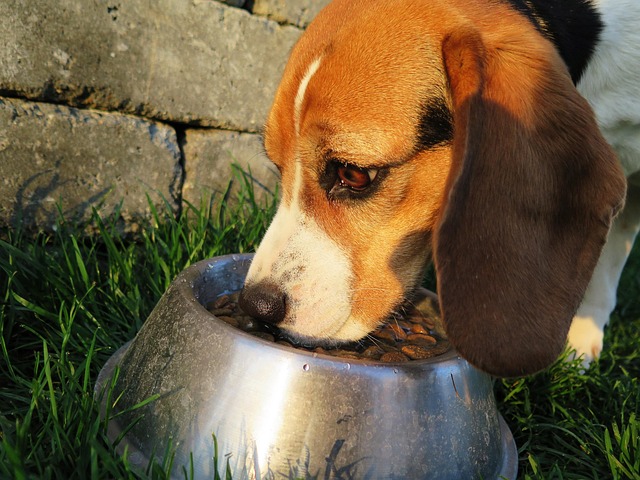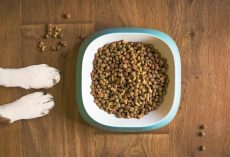As dogs age, their nutritional needs start to shift — even if they seem healthy and energetic. While you might be tempted to keep feeding your dog the same adult formula he’s always eaten, senior dogs often do best on diets designed specifically for their aging bodies.
Here’s how senior dog food differs from adult food, when to make the switch, and what to look for when choosing the right formula for your older pup.
Why Senior Dogs Need a Different Diet
Just like puppies need special food to grow, older dogs need nutrition that supports their slowing metabolism, reduced activity levels and age-related health challenges.
Senior dogs often have:
- Lower energy levels
- A slower metabolism
- Emerging health issues (like arthritis, kidney concerns or weight gain)
So feeding a diet tailored to these changes can help keep your dog feeling good for longer.
What Makes Senior Dog Food Different?
Senior formulas typically adjust protein, fat and calories to match an older dog’s needs.
Common differences include:
• Lower protein (in many formulas)
This can ease kidney workload. But some senior diets actually have higher protein to combat muscle loss — the right choice depends on your dog’s health. Your vet can guide you.
• Reduced fat and calories
A slower metabolism means senior dogs gain weight more easily. Less fat keeps weight under control and prevents extra strain on the joints.
• Additional nutrients for aging bodies
These may include omega-3s, antioxidants, joint-support ingredients and easily digestible grains.
Because every dog ages differently, not all seniors need senior food — but many benefit from it.
When To Switch Your Dog to Senior Food
There’s no universal “senior” age. The age at which you should switch your pup to senior dog food will depend on a few factors, including his size, health and how active he is.
General guidelines:
- Small dogs (under 25 lbs): Switch around 8–9 years
- Large breeds (over 50–60 lbs): Switch around 7 years
- Giant breeds: Sometimes even earlier
But size isn’t the only factor. Your vet may recommend senior food sooner if your dog is:
- Overweight
- Slowing down noticeably
- Developing conditions like kidney disease, heart disease or arthritis
Highly active, healthy older dogs may stay on adult food longer — but many seniors benefit from the targeted nutrition in specialized diets.
What To Look For in Senior Dog Food
When choosing a senior formula, keep these priorities in mind:
1. AAFCO “Complete & Balanced”
Always check the nutritional adequacy statement. If it’s Association of American Feed Control Officials (AAFCO)-approved for adult maintenance, you’re good.
2. Real, whole-food ingredients
The first ingredient should ideally be a high-quality protein like chicken, lamb or beef — not by-products.
3. Not grain-free (unless your vet says otherwise)
Non-prescription grain-free diets have been associated with heart issues in some dogs.
4. Added omega-3 fatty acids
These support joint health, reduce inflammation and help aging dogs stay comfortable.
5. Vet recommendation if your dog has medical needs
Dogs with joint problems, kidney issues, or heart disease may need prescription senior diets.
Best Senior Dog Foods
All of the following options meet AAFCO standards for adult dogs and are recommended by veterinarians.
Senior Dog Food for Arthritis
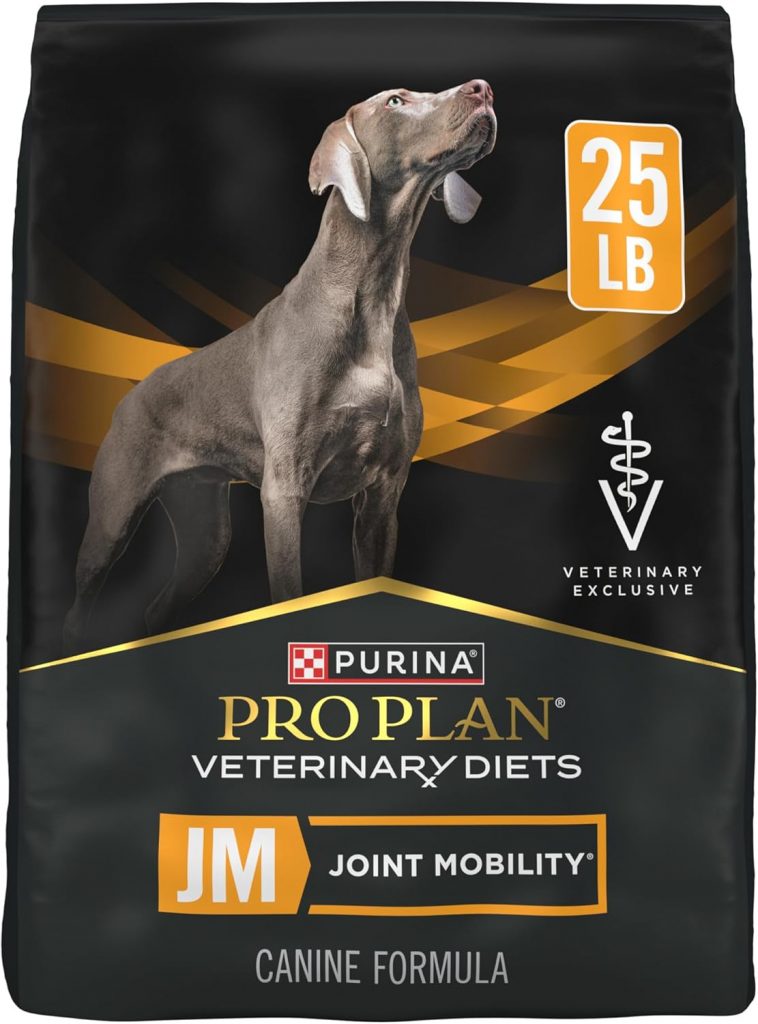
Purina Pro Plan Veterinary Diets JM Joint Mobility Dry Dog Food
- Why it’s great: Packed with omega-3s, glucosamine and antioxidants to support joint health; high protein-to-calorie ratio helps maintain lean muscle.
- Food type: Prescription
- First ingredients: Brewers rice, trout, salmon meal
- Add-on benefits: Glucosamine for cartilage support
Senior Dog Food for Medium Breeds
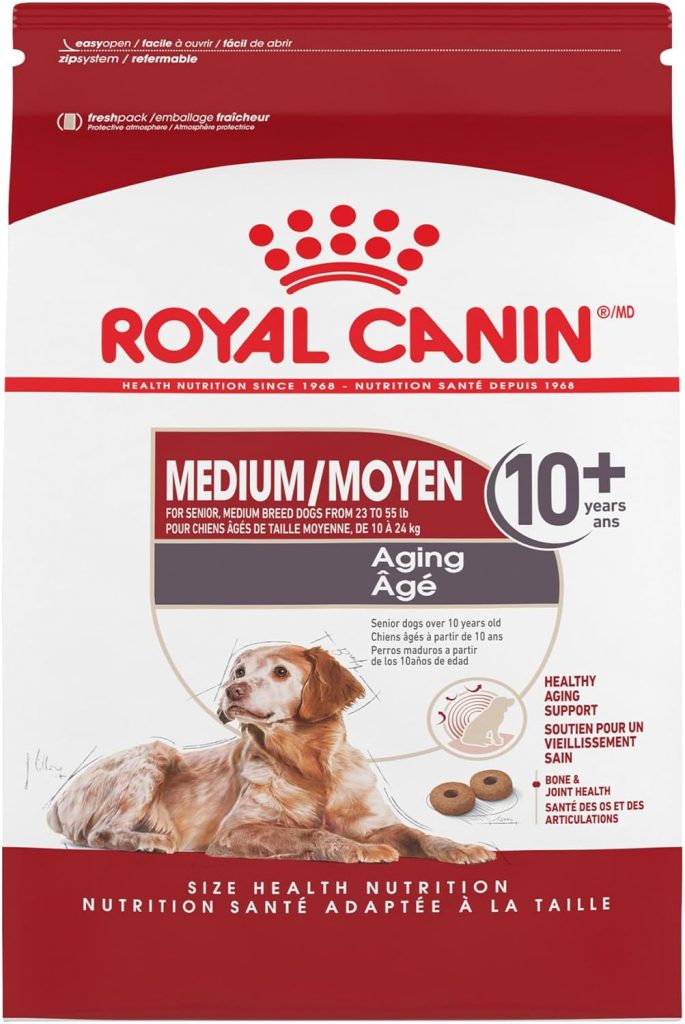
Royal Canin Medium Breed Aging 10+ Dry Dog Food
- Why it’s great: Formulated for medium senior dogs 10+ years weighing 23 to 55 lbs with easy-to-digest proteins, vitamins and minerals, and a blend of fibers for optimal nutrient absorption
- Food type: Over-the-counter
- First ingredients: Brewers rice, chicken by-product meal, corn gluten meal
- Add-on benefits: Clinically proven antioxidants (vitamins C & E) and prebiotics for a healthy gut to help maintain a healthy immune system
Senior Dog Food for Large Breeds
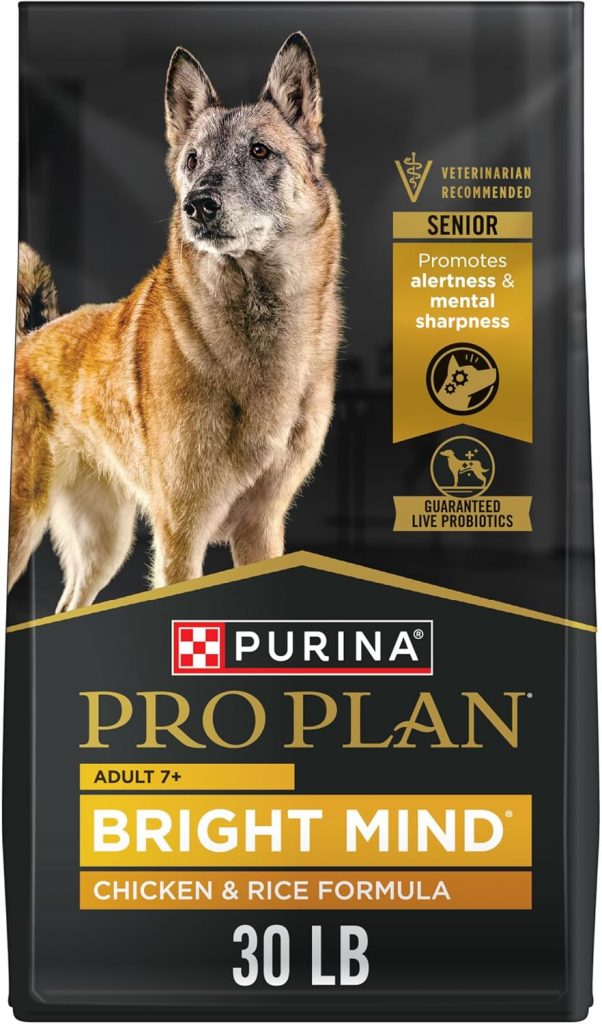
Purina Pro Plan Senior 7+ Brain Support
- Why it’s great: Real chicken and rice formula with probiotics for digestion, glucosamine and omega-3s for joints, plus botanical oils for brain health.
- Food type: Over-the-counter
- First ingredients: Chicken, rice, poultry by-product meal
- Add-on benefits: Botanical oils to support cognitive function
Senior Dog Food for Small Breeds
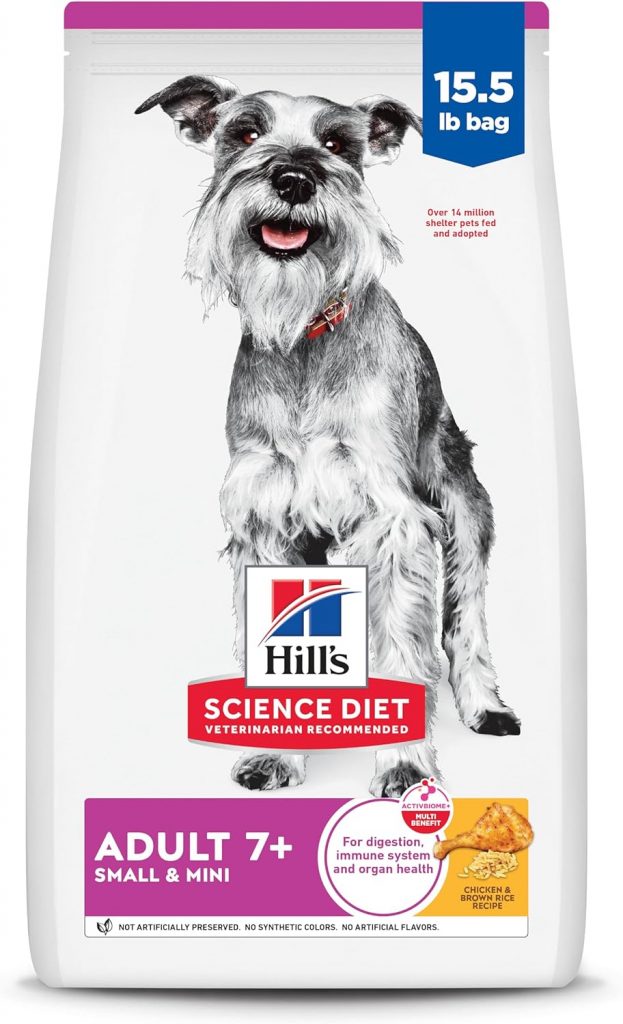
Hill's Science Diet Senior Adult 7+ Small & Mini Breeds Chicken, Brown Rice, & Barley Dry Dog Food
- Why it’s great: Provides balanced minerals that support heart, kidney and bladder health; complete and balanced nutrition to help keep your dog at its ideal weight
- Food type: Over-the-counter
- First ingredients: Chicken meal, cracked pearled barley, brown rice
- Add-on benefits: Immune-supporting vitamins and antioxidants
Senior Dog Food for Sensitive Stomachs
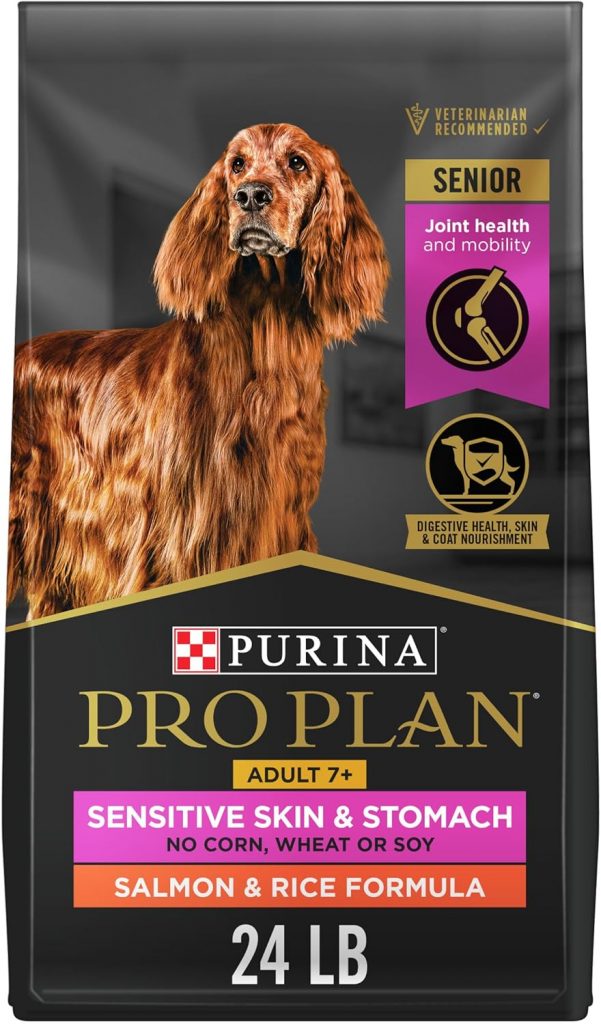
Purina Pro Plan Sensitive Skin & Stomach for Adults 7+
- Why it’s great: Salmon and rice formula with probiotics, prebiotics, omega-6s and glucosamine — perfect for seniors with tummy issues or skin concerns.
- Food type: Over-the-counter
- First ingredients: Salmon, rice, barley
- Add-on benefits: Sunflower oil for skin and coat
Best Wet Senior Dog Food
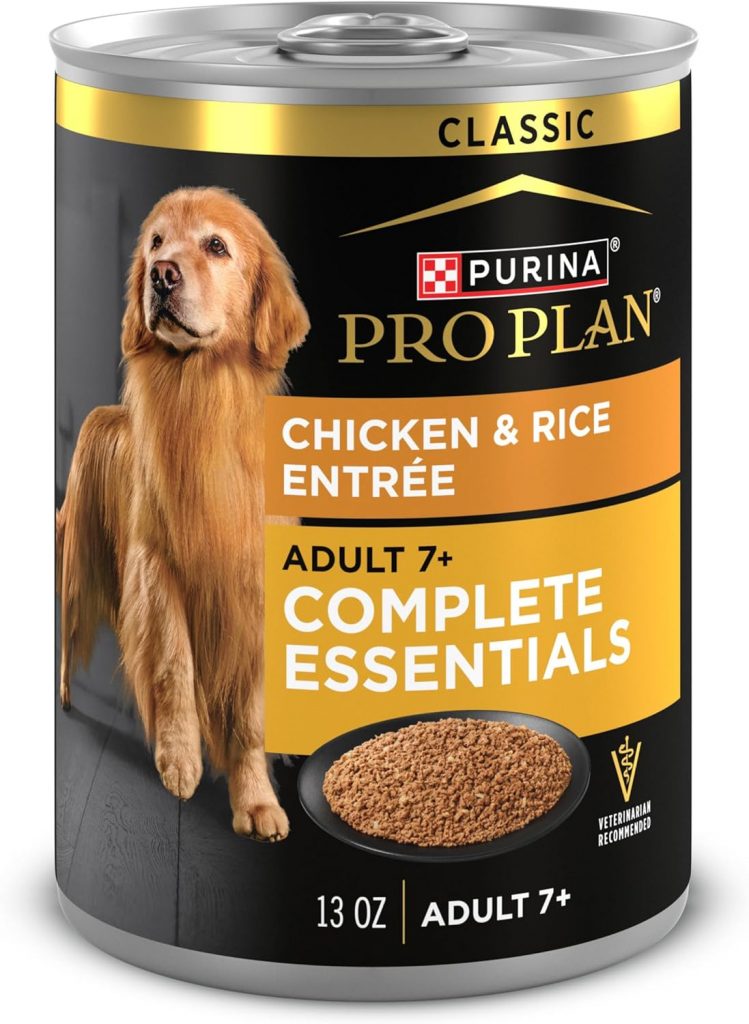
Purina Pro Plan Senior Chicken & Rice Entrée Canned Dog Food
- Why it’s great: High-protein wet food made with real chicken and no artificial colors, flavors or preservatives.
- Food type: Over-the-counter
- First ingredients: Chicken, Liver, Water
- Add-on benefits: 23 essential vitamins and minerals
The Bottom Line
Feeding your senior dog the right diet can help him stay healthier, leaner and more comfortable as he ages. Every dog is different, so work with your vet to determine when to switch foods and which formula is best for your pup’s needs.
If you’re ever unsure, your veterinarian is the best guide.
We independently pick all the products we recommend because we love them and think you will too. If you buy a product from a link on our site, we may earn a commission.

